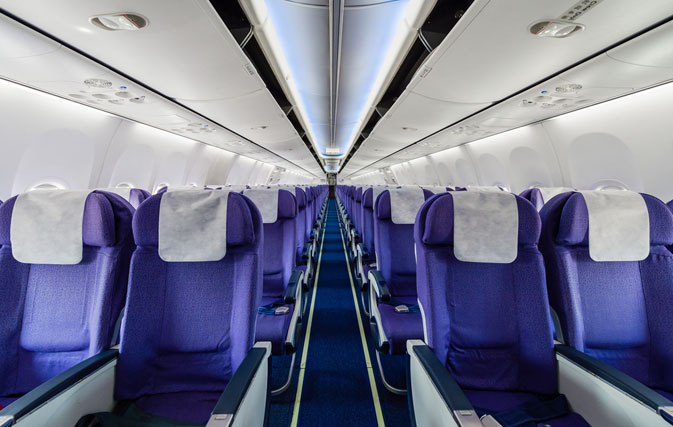This story originally ran in the March 8th, 2018 issue of Travelweek magazine. To get Travelweek delivered to your agency for free, subscribe here.
TORONTO — Now that Canadian carriers are following the U.S. and European lead with rock-bottom basic economy fares, travel agents have a lot of explaining to do – explaining about just how restrictive basic economy fares are, to clients who can’t see past all the low prices.
Air Canada introduced its Economy Basic fare last month. WestJet’s newest fare class, Econo (Lowest), came days later. Both fares are in line with the trend from the U.S. and Europe, where the rampant success of ultra low-cost carriers has driven legacy carriers including American Airlines, Delta, United, Air France KLM and British Airways to drill down as far as possible with low-priced basic economy fares.
Basic economy fares typically don’t allow cancellations, changes or free advance seat selection, leading to consumer outcry about families having to pay to sit together.
There’s also, at least in the case of United and American Airlines, the infamous ban on the use of overhead bins.
Travel agents are well versed in fare restrictions, but the travelling public is not.
“These are definitely targeted toward the (absolutely) no-frills consumer and direct,” says Allison Wallace, SVP, Communication & Engagement for Flight Centre Travel Group.
She adds that while FC will sell the basic economy fares if requested, these types of fares “no matter how much you advise a consumer of the restrictions, usually breed the most complaints or dissatisfaction with service. Our strategy will continue to be to provide the options available and recommend the fare best suited to that itinerary.”
Brian Robertson, President (Ontario-West), Vision Travel, says basic economy fares “rarely deliver an experience the traveller is expecting. Most come with additional charges for seats, checked bags, meals, changes; they typically earn zero points and are of course non-refundable. They are designed for travellers who fly infrequently and are looking for the very basics… a seat between point A and B.”
He adds: “The airlines discourage frequent travellers from using them and we discourage our frequent travellers from selecting them by monitoring travel compliance and matching traveller needs with corporate travel policies. The additional potential charges related to these fares far outweigh any benefits for frequent travellers.”
Even the airlines admit that basic economy fares are not for everyone.
“Econo (Lowest) is designed for the value-seeking guest who doesn’t travel often. We want to attract travellers who are looking for low cost fares without any added amenities,” says WestJet. It advises passengers: “Available on select routes and flights, this basic economy fare is for you if your plans are set in stone and you don’t mind where you sit. If you select this option, please understand that this is our most restrictive fare, and it’s non-refundable. You are not able to make changes, so if cancelled more than 24-hours after booking, no funds will be placed in a Travel Bank account. Your seats will be assigned at the time of check in, but, if needed, your seats can be changed at this time, for a fee.”
The airlines say basic economy fares are about choice. As WestJet transitions to a global airline, the carrier says it wants its passengers to have more choices when it comes to their travel experience.
Basic economy fares are also a defensive move against price pressure from ultra low-cost carriers. Flair Airlines, now operating as a scheduled carrier, has a network of seven cities and more planes on the way, while WestJet’s own Swoop launches June 20. Bob Cummings, when he was Executive VP for Swoop, has said WestJet believes there is room for only one major ultra low-cost carrier in Canada.
The lowest fares, and the LCC and ULCC airlines models, are also about ancillaries.
Between 60% and 70% of Swoop passengers are expected to pay fees for carry-on and checked baggage, according to the airline’s estimates. Meanwhile WestJet’s fees for services like flight changes, cancellations and checked bags increased 12% in Q3 2017, to $117 million, or $18.64 per passenger. Air Canada says ancillaries are a key focus as the airline grows its network.
Ancillaries, or ‘a la carte revenue’ for everything from checked bags to meals, for the world’s airlines has grown 308% in the past seven years, from US$14 billion in 2010 to $57 billion in 2017, according to the latest numbers from IdeaWorksCompany, which through the sponsorship of CarTrawler, reports on ancillary revenue disclosures for the world’s airlines.
For North American carriers, ancillary revenue was up 176% from 2010 to 2017, from $5.4 billion in 2010 to $14.8 billion in 2017.
The report notes that the industry should be on the lookout for increases in North America and in Europe as transatlantic airlines begin to add fees during 2018 for the first bag checked.
The GDSs are onboard with ancillaries, with Amadeus announcing that by the end of 2017, 143 airlines had signed up for its Amadeus Airline Ancillary Services for the indirect channel, including Air Canada. Total travel agency air bookings for Amadeus in 2017 grew 6.3% to 568.4 million.
This story originally ran in the March 8th, 2018 issue of Travelweek magazine. To get Travelweek delivered to your agency for free, subscribe here.

